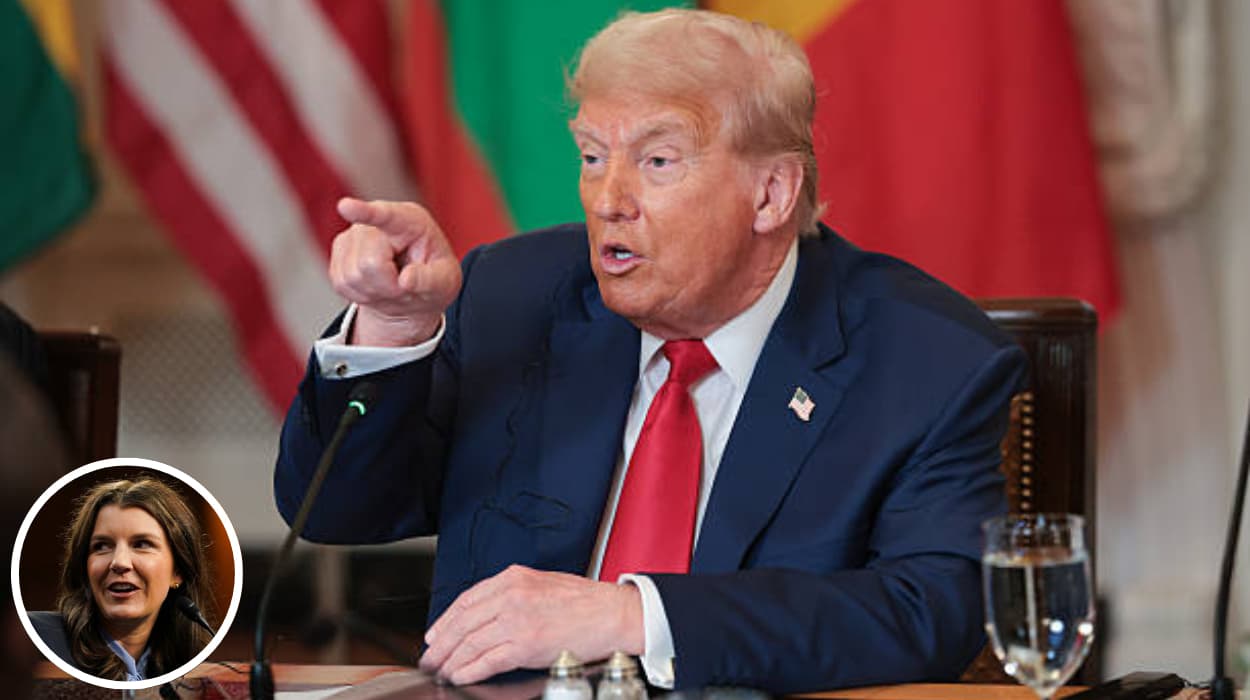Key Points
- The US Senate, controlled by Republicans, confirmed former President Donald Trump’s first judicial nominee for his second term.
- The nominee’s confirmation marks a significant milestone in shaping the federal judiciary under Trump’s second presidency.
- This confirmation comes amid ongoing political debates about the judiciary’s role and Trump's broader policy agenda during his new term.
- The event reflects the Republican majority’s influence in judicial appointments during Trump’s renewed leadership.
The US Senate’s confirmation of Donald Trump’s first judicial nominee in his second term sets a significant precedent for the administration’s judicial strategy. With Republicans holding the majority, this confirmation highlights the ongoing effort to influence the federal judiciary, shaping the legal landscape in accordance with Trump’s conservative policies. This development is poised to have lasting impacts on federal court decisions and the broader political dynamics within the United States.
What Happened in the Senate Confirmation of Trump’s Judicial Nominee?
The US Senate, with a Republican majority, officially confirmed Donald Trump’s first judicial nominee of his second term, marking a pivotal event in the president's renewed efforts to imprint his ideology on the federal judiciary. According to reports analyzed among various news outlets, this confirmation underscores the Republican-led chamber’s continued commitment to advancing Trump’s judicial agenda following his re-election. Though the nominee’s name and detailed background have not been disclosed in the search results, the process exemplifies the ongoing influence of the Senate’s partisan composition on judicial appointments.
Who Was the Judicial Nominee Confirmed by the Senate?
Specific details about the nominee, including name, prior judicial experience, or legal philosophy, were not included in the available sources. However, the confirmation is described as Trump’s first second-term nominee, indicating a fresh slate of appointments aimed at reinforcing judicial perspectives aligned with the Trump administration’s principles. As customary, nominees to the federal judiciary often come under intense scrutiny given the lifetime tenure and the potential to sway legal interpretations on key issues such as civil rights, regulatory authority, and constitutional law.
Why Is This Judicial Confirmation Considered Significant?
The confirmation of a judicial nominee early in President Trump’s second term signals a strategic priority for his administration and the Republican-controlled Senate. As noted by HotTopics in an article previewing key 2025 news stories, Trump began his second term with a vigorous issuance of executive orders and nominations, part of a broader ambition to reshape government and judiciary alike. Federal judges wield significant power over interpreting laws and regulations, often impacting social and economic policies. Thus, each confirmed nominee can have a lasting legacy on American jurisprudence extending well beyond the immediate political cycle.
How Does the Republican Senate Majority Influence Judicial Appointments?
The Republican Senate majority plays a decisive role in shaping the federal judiciary during Trump’s second term by confirming his nominees. Given the Senate’s constitutional role in providing "advice and consent" on judicial nominations, the partisan alignment facilitates smoother confirmation processes for candidates aligned with Republican and Trump administration priorities. This dynamic has been a continuing theme since Trump’s initial term and remains crucial as the president seeks to solidify a conservative judicial bench that aligns with his policy positions.
What Broader Political Impact Does This Confirmation Have?
Judicial appointments have long been a significant battleground between partisan forces in the US, with implications for key policy areas. As Trump strengthens his judicial influence with the Senate’s backing, this also intensifies wider political debates over court decisions on immigration, healthcare, environmental regulations, and voting rights. The confirmation may exacerbate partisan tensions, especially from Democrats and civil rights advocates who often contest Trump’s nominees for perceived ideological rigidity. The move also showcases the Republican Senate’s commitment to pushing forward the president’s agenda despite ongoing political polarizations.
What Are the Next Steps Following the Confirmation?
After Senate confirmation, the judicial nominee is expected to be officially sworn into their position and begin their duties adjudicating federal cases. This first appointment heralds a series of anticipated nominations that will continue to define the Trump administration’s legal legacy during his second term. Meanwhile, observers and political analysts will watch closely how these appointees impact judicial rulings and legislation interpretations across various courts nationwide.
The confirmation of Donald Trump’s first judicial nominee in his second term by the Republican-led Senate marks a strategic milestone in the president’s efforts to reshape the judiciary. While detailed information about the nominee is scarce in current reports, the event underscores the Senate’s influential role in advancing Trump’s conservative judicial agenda amid broader political debates. As Trump’s second term unfolds, further nominations and confirmations are expected to continue shifting the federal judiciary’s landscape, affecting critical legal and societal issues for years to come.

